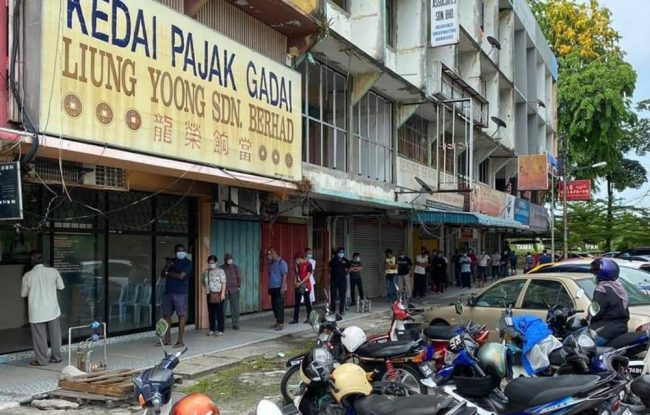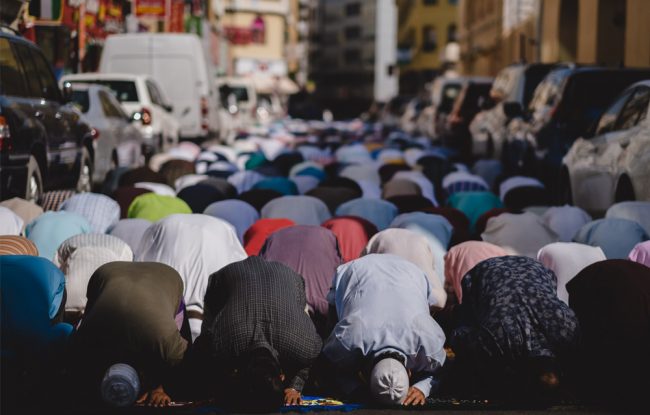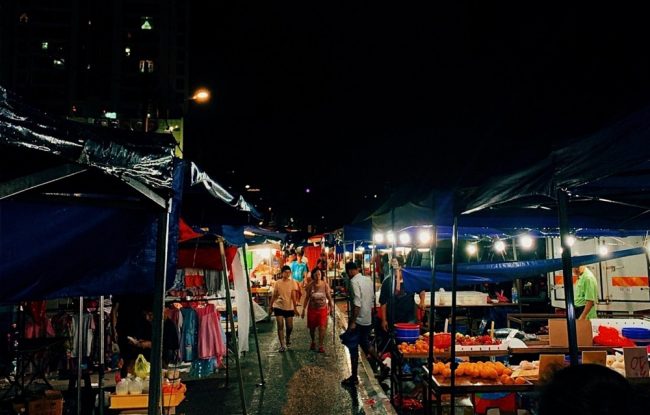Updated on 8th December 2018 (originally written on 1st November)
PART II: Weighing In The Reactions
Delving further into the opinions of some important personalities like Deputy Yang di-Pertuan Agong Sultan Nazrin Muizuddin Shah and Perlis Mufti Dr Mohd Asri Zainul Abidin, it now appears that there is dissatisfaction among the citizens at the perceived blunders made by the government in handling this ICERD debate, in addition to several other Ministerial-level mistakes.
Many have accused the government, in particular YB Senator Waytha Moorty, of ‘jumping the gun’ and insisting on ratifying ICERD, whereas it has not yet delivered on many other key promises during their election campaign.
This has led the government going into ‘damage control’ mode with statements issued by prominent figures in Pakatan Harapan, most significantly coming from newly elected President of PKR and Prime Minister in-waiting YB Dato Seri Anwar Ibrahim, and also current Prime Minister Tun Dr Mahathir Mohamad himself, calling for postponement and reconsideration in ratifying ICERD, as public pressure has thus far proven itself to be overwhelming.
This astute move done by the two most senior persons in the ruling coalition is necessary as it avoids an unwise ‘free for all’ situation that may deteriorate into political instability for Malaysia. ICERD is a long term process that requires further deliberations, deeper conversations and enough nuance that should be inclusive of various perspectives, particularly from the youths as they are the ones that will undergo the full brunt of the ratification processes and its repercussions in setting the new demography of a better Malaysia.
Cautious Optimism
Currently, every topic in Malaysia is being ‘hyper-politicized’ by interest groups to the point of reaching a deadlock and not many viable alternatives are produced. The issue at hand is rather straightforward. ICERD can be ratified without jeopardizing or altering the Constitution as the highest law of the nation.
To even attempt at amending it requires several complicated layers of procedures namely a two-thirds majority in Parliament, a passing at the Senate, and an approval from the Conference of Rulers. The constitution and its content are not at risk despite certain groups insisting so. The ultimate objective for any legislation must be based upon the concept of social justice, and the necessity to place reasonable equity above blanketed equality to be carried out more so in the very diverse, multicultural, multi-religious circumstance that we have.
This however does not mean that in pursuing what we deem as our brand of justice, is to be carelessly confused with justifying any kind of discriminatory malice. It is imperative for us to properly understand the ‘spirit’ of the Convention and the ‘reasons’ to its establishment. Although there have been instances where even several of the most celebrated and fascinating political figures have made some really awful choices (that becomes a public relations nightmare and many conflicting statements that lead up to confusion!), open debate is healthy for any democratic society as it forms the basis for constructing consensus.
In a maturing democracy like the one Malaysia has at this moment in time, a major change in the destructive attitude of racial politics to a more bipartisan politics is vital to make our democracy functional. These are the ‘labor pains’ in shaping a complex and modern society.
We must learn to challenge the myths and status quo of obeying submissively. We need to dispel the assumptions and inaccuracies within ourselves and put a concerted effort to tone down the purely racist hostilities in and around our society. We must not allow any moron to exploit or hijack the people’s interest and politicize the issues to score political points that extends their careers or enriches their elite circles.
It is the duty of “enlightened souls” as defined by the Iranian intellectual Ali Shariati, that we move forward with proper conversations and publish more factual information on the costs and benefits that clarifies to us of how this is all supposed to work out. Countering feelings and sentiments with truths and specifics are extremely difficult, but requires a personal touch from those responsible to rationally explain and convince others.
Referring to YB Dato Saifuddin Abdullah’s statement and podcast interview, the foreign affairs minister emphasized on the need to understanding the ‘bigger picture’ when it comes to dealing with the international treaties, and that proactive steps are needed in order to gradually shift the existing Malaysian paradigm towards the reformative agenda after years of living in a parochial and fragmented mentality.
Latest Developments
Apparently, many Malaysians are still hesitant, and unimpressed by the majority of Tun Dr Mahathir’s new cabinet line-up, as they feel too many drastic changes will not only disrupt the existing social contract and power structures, but also could possibly spiral Malaysia out of control.
This government must know how to gradually ease the edgy citizens experiencing this transition with convincing strategies and compelling arguments, instead of empty promises of hope. This is a rather dangerous situation for many legitimate reasons as growing tensions become much more overt. If history has taught us anything, it is that any good reform agenda cannot and should not be rushed through in a revolutionary or forced fashion.
Despite the official announcement made by the Pakatan Harapan government on the 23rd November to indefinitely postpone the ratification of ICERD, the proposed anti-ICERD rally organized by UMNO, PAS and a host of local NGOs that championed the Malay-Muslim cause went ahead as planned on December 8, 2018, under the guise of ‘thanking’ the government’s decision in bowing down to intense public pressure.
In the following days after the announcement throughout the end of November and early December, Malaysia was rocked by several alarming racial situations that raised major security concerns for the anti-ICERD rally. The absurd new policies introduced by PTPTN further heightened the feelings of dissatisfaction towards the Pakatan Harapan Government’s performance in delivering their promises and policies, triggering a ‘perfect storm’ to sustain the momentum for the anti-ICERD rally.
Although many will dispute this, Malaysia’s political climate has always been closely associated with the dynamic social developments from its regional neighbours in ASEAN. The ‘spill over’ effect, particularly trends emerging out from Indonesia would often eventual arrive and impact Malaysia’s own local scene. As Indonesia undergoes its version of an ultra-conservative Malay-Muslim upsurge with the Aksi Bela Islam protest series, so does Malaysia with the current UMNO and PAS package mirroring such ideas.
A Generated Spectacle
The anti-ICERD rally in Kuala Lumpur on December 8, 2018, managed to gather an estimated 80,000 – 100,000 at its peak time despite some exaggerated claims that it exceeded those figures. It still falls short from the anticipated numbers announced by the UMNO Youth Chief, Dr Asyraf Wajdi Dusuki and clearly reflects the situation within the ranks of UMNO and PAS facing lack of support from disillusioned members from the two parties itself which previously had boast to have 3 million and nearly 1 million registered members each respectively nationwide.
On the one hand, the rally was peaceful from start to finish with the coordinators commended for being well-organized. It was a protest as an opposition front that now have unparalleled combined grassroots mobilization capabilities, experience and resources. However, a majority that attended the rally were not from KL itself, and most of them did not properly understand the purpose of the anti-ICERD rally as evidenced by videos of spontaneous interviews and testimonies done by media journalists on Twitter and Facebook.
Most of them struggled to even explain what ICERD is all about, assuming that it threatened the Bumiputra’s (sons of soil) status, and made puzzling remarks that revealed their attendance as either sentiment-based or unquestionable loyalty to their political ideals. Unfortunately, much to the despair of many experts’ predictions, identity politics for power are here to stay in Malaysia, thriving in the newly found democratic freedoms.
This anti-ICERD rally alludes to a very significant segment of Malaysian society, which should not be underestimated or left unnoticed, being highly resistant to progressive ideas and globalized concepts. This scenario is very similar to what is transpiring in the Western world, which are facing the rise of the far-right populists and the decline of the Western liberal order.
Moving Forward
As a Malaysian, I see that this is a lot on the plate for the Pakatan Harapan government to deal with. ICERD should not have been a priority to begin with as they have other urgent matters to attend to such as salvaging what’s left of the economy, bridging the large inequality gap among the people, and to bring those culprits that sank the country to justice. From a democratic standpoint, the debate surrounding ICERD has reinvigorate the opposition with a visible and strong reaction, and it is also a good measurement for the government to see the obvious fragilities among the various elements inside of the Pakatan Harapan coalition.
It is now a fitting moment for observers to identify the underlying reasons as to how such a huge portion of Malay-Muslim still find themselves disenfranchised despite decades of privileges, which sadly have been exploited and abused by crony elites of the previous government, hence highlighting the importance of institutional reforms to take place.
‘New Malaysia’ is on unchartered waters, therefore it needs to have a clear direction from a safe-stable leadership, and the ones that are able to best portray so shall earn the majority’s support. The time for ‘political experimenting’ is well and truly over. Malaysians in general will no longer be willing to jeopardise in an already uncertain world. If not handled carefully by the current government, this will ultimately shape the outcome for the next GE.
With Pakatan Harapan becoming less appealing due to its populist promises as well as never ending internal bickering, while UMNO-PAS choosing to insulate itself to cater to specific types of voters and reach a more intolerant audience as its political base, Malaysia’s new ‘power brokers’ –youths and civil societies- might opt to other alternatives or create something innovatively new to render the two current political options obsolete. No matter how much we may look forward to exciting new chapters in our politics, there’s no such thing as a ‘perfect happy ever after’ ending.
Halmie Azrie is an intern at IMAN Research, and also a young scholar of Political Science and International Relations. He is currently completing his bachelor’s degree at the Asia Pacific University. He has been involved in intellectual activism with PKPIM for over a decade. Halmie has also co-edited several indie books & published writings at The Malaysian Insider and NadiSiswa.




